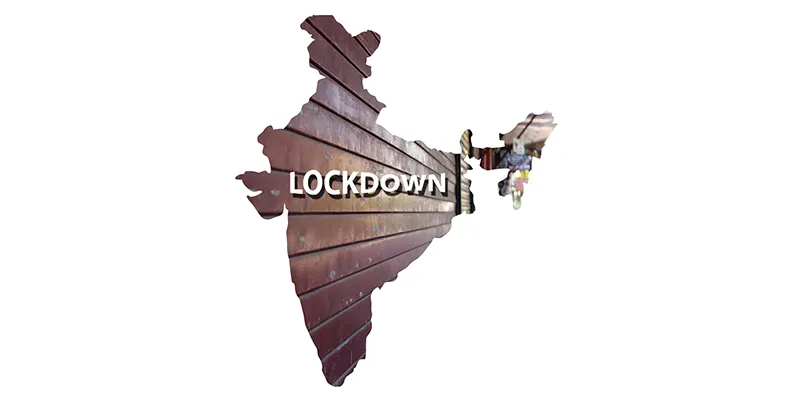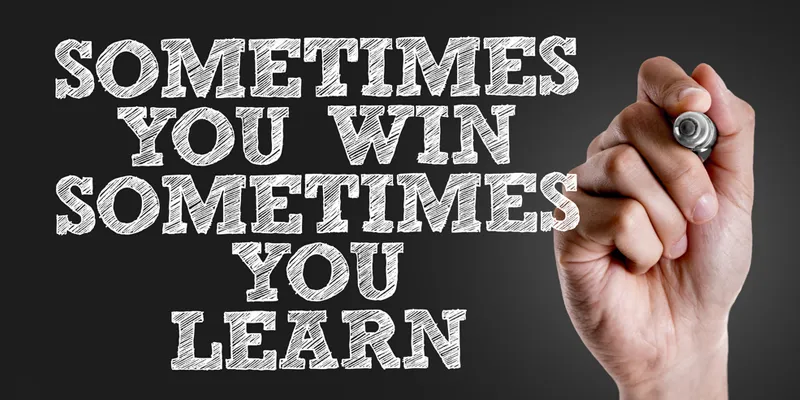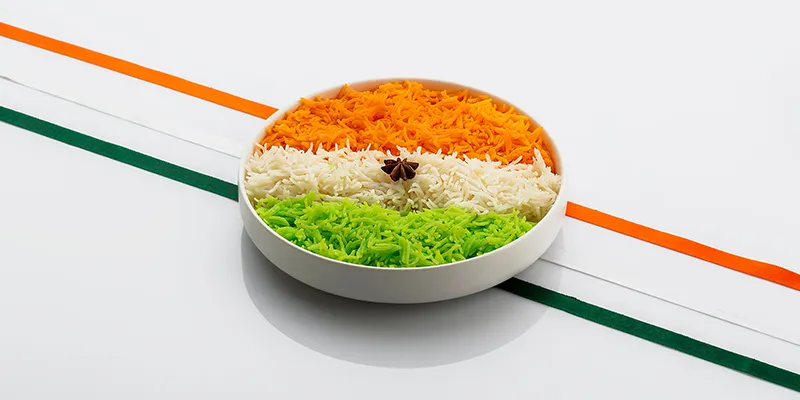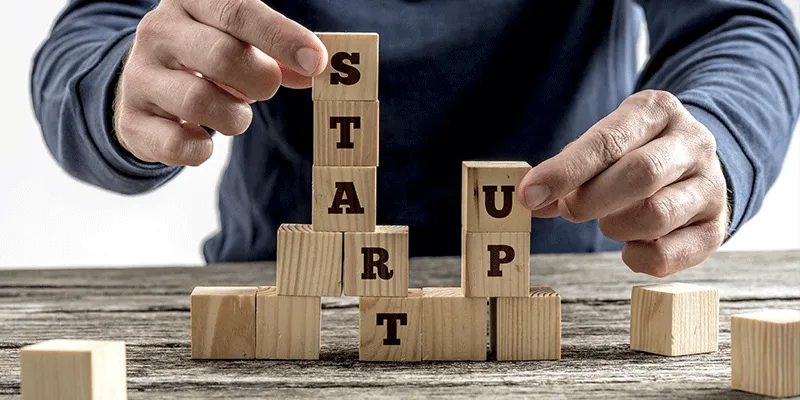Hospitality will be a very important part of the healing process of the world, says masterchef Vikas Khanna
“It is so easy to pull each other down. But it takes a lot of courage to uplift each other,” explains India’s global food ambassador Vikas Khanna in this inspiring interview.
Michelin-star chef Vikas Khanna is the author of Barkat: The inspiration and story behind one of the world’s largest food drives, FEED INDIA (see my book review here).
Vikas studied at the Welcomgroup Graduate School of Hotel Administration, Manipal, Culinary Institute of America, Cornell University, and Le Cordon Bleu, Paris. Now based in New York city, he is the host of TV shows MasterChef India, Twist of Taste, and Mega Kitchens.
See also YourStory’s Book Review section with takeaways from over 330 titles on creativity, entrepreneurship, innovation, social enterprise, and digital transformation.
In this insightful and inspiring interview, Vikas shares his views on community giving through food, tips for aspiring innovators and food entrepreneurs, and even his favourite garlic recipes!
Edited excerpts from the interview:

YourStory [YS]: How did you feel about the spirit of community giving through food during the pandemic and the FEED INDIA drive?
Vikas Khanna [VK]: I think the story of food, human spirit, and service has always been a part of Indian history and culture. It's the foundation of the culture.
I think, of course, I got way too much credit for FEED INDIA. The truth is that I was a very small part of this equation, there were thousands and thousands of people who were making this happen, and gave themselves to this cause.
I was sitting all the way across in New York. And there were people on the ground in India who were sacrificing and risking their health, their lives, their families. They were on the ground, around the clock, supporting people – from trains, highways, to old age homes, leprosy centers, orphanages, on the streets, on bus stops, and on railway stations.
I thought that was something which was very important, that spirit was so powerful. And I still feel that connecting the community through food has always been the grassroots foundation of India.
[YS]: How was your book received? What were some of the unusual responses and reactions you got?
[VK]: The book was received very well. There were constant emotional messages from people about how this inspired them to do things beyond their regular professions. I think it is great if you can start a chain reaction like that, when everyone feels that they had the capacity to make a difference.
So I think that's a big legacy of any kind of literature, where it touches people's hearts. And I feel very, very grateful for that.
I’ve heard from some kids who read the book and said their school club will start their own foundation to help elderly people and people living on the streets. You know, these emails really have a very profound impact on my mind.
It also keeps me going that I have to create work, which is not just meaningful, but has also got some kind of position in people's hearts. And that's a great part of literature, where it does that.

[YS]: It’s one thing to ‘fail’ with a dish and a bigger dimension to fail with a restaurant or food business. How should food entrepreneurs regroup and bounce back in such situations?
[VK]: You know, this is a very important and emotional question for me, because I have suffered a lot during this time.
I'm not sure how everyone will recover. I'm sure everybody will find the personal equation to recover, for sure. People will find their own truth, people will always find their own ways to reinvent, and to be reincarnated in this industry.
I have seen people do some of the most creative work during this time, too. I've seen some of the chefs come up with some brilliant concepts and ideas, because some of them got passed on to me. And I feel very proud that people have come up, not just in India but all over the world, people have found ways to get their voice back in this industry.
Hospitality will be a very important part of the healing process of the world. This is a social event that we create in restaurants. It is also a very important community event – even if people don't know each other in the restaurant, they're all dining in the same space.
You’re still creating a community where people are at one place, it's just like watching big games in America, or concerts. In historical times, people got together for religious ceremonies, in temples, mosques or churches.
I think chefs and restaurants play a very similar role in community building, though the context is different. And I'm sure it is going to get stronger and better as you pass on. But right now it's about sustainability.
I feel that it is going to be essential for chefs to find their own voice to do creative takeaways, find new packaged foods, find new business models, during these kinds of rock-bottom moments in life. You can actually come up with the greatest project of your life.

[YS]: What is your take on the rise of startups and food entrepreneurs in India? What should founders be doing to seize the opportunity and also overcome the challenges?
[VK]: I feel that the way young Indians are coming up is different and unique. I'm not talking about my generation per se, I'm talking about the upcoming generations and hospitality.
Every time we are doing some events on Zoom or elsewhere, I feel that their ideas and spirit, the form of their profession, is taking on almost a form of patriotism in the food world.
There is a huge difference between what we aspired to do in our times in the 1990s, and the kids who are doing work right now. The majority of the people who passed out with me during my time dreamt of working in a five star hotel, or moving abroad. I think right now I see the kids want to be self-employed, they want to be creating jobs.
It's a very different mindset, which has happened in the last three decades. I've been in this industry for more than 30 years, and I have seen the huge shift of the younger generation being more enterprising than us, finding new creative ways for deliveries or leveraging social media and digital platforms to not just promote the cuisine but also turn into business models. And I think it's beautiful!
[YS]: I am a big fan of garlic! What are three outstanding garlic-centric dishes you would recommend?
[VK]: Garlic is amazing!
I'm going to tell you a recipe of garlic, which is a little strange -- it’s garlic kheer. So what you do is you chop garlic and boil it. I keep a proportion of three cups of water to one cup of garlic. I bring the water to boil and then I add the garlic to it. After a few minutes. I remove the garlic when it comes to boil again.
Then I rinse it and put it back in three cups of boiling water. I rinse it again and repeat for the third time. So three rinses of garlic in boiling water for one to two minutes each, depending on the variety of garlic you're using.
I think this is something so interesting. Now to make the garlic kheer, you boil milk, reduce it, and add the garlic. Continue to cook it, add sugar, add nuts of your choice. You're going to love this recipe!
And another dish which I feel is a beautiful idea is roasting garlic. I take the whole bulb or head of garlic and cut it horizontally, not vertically. You add a little bit of olive oil and sprinkle with salt, pack it in aluminum foil, and bake it at 350 degrees for at least 40 to 50 minutes.
This is a good practice when you're baking something else and you put this aluminum pocket with it; you don't have to turn on the oven specially for roasting this garlic. Once it's done, it turns mushy and amazing.
Add it to a little melted butter and whisk it, then transfer to a container. Refrigerate it, and you have the most amazing garlic butter! This is great, you can add it during the middle of your recipe while you're cooking a curry, baking something, or making a pasta. You can use even use this to enhance a garlic dip.
And the third dish I feel is not very conventional. I've seen this being used in some parts of Assam, where they actually ferment garlic. You ferment it in a way that is almost like pickles but it's not exactly the same. I also saw it in Mizoram, where the whole cloves of garlic are lightly mashed so that they release the flavor. They add water and a little vinegar, and leave it in the open. It almost ferments, and that is one of the most intense flavors of garlic, which I have ever smelled!
I thought it was great, and I also saw this garlic being fermented in bamboo shoots. So it's breathing and you can use it as a base of any dish. You can make a paste out of it and or you can just use it like this. Just chop it up well. It takes about a week, but it is almost like a garlic pickle, with different intensity.

[YS]: At a time of increasing social conflict, polarisation, and economic hardships in the world, what would you say are the key messages from your work and your books?
[VK]: I think every literature plays an important role, depending on the impact it creates. I want Barkat to have an impact on people's minds about unity, which has amazing power.
It is so easy to pull each other down, but it takes a lot of courage to uplift each other. And that is what is more important. And that is why I feel this book is very important to me. It's a very significant book in my career and my life.
[YS]: As a creative expert, what are three habits or tips you can share that you feel contribute to your success?
[VK]: I don't think I consider myself successful. I just feel that I am a work in progress! But here are three tips I will tell you about.
Don't think way too much about broken relationships, or broken contracts or you know, broken stuff. It's good to reflect on it, but don't let it suck you in. Do not. It is very important how fast you move on, that is going to be the part of your healing.
Secondly, don't get intimidated. That has been a very important learning of my life having such a massive career in America, because judgment is so easy. It's so easy to judge people based on their colour, origin, skin or religion. But don't do that.
And don't get so confused or so demoralised when people do that, because they will do that. You've got to remember that there's something which plays a very little part in your success or life, and that is talent.
What plays a very important role is how much you're ready to work hard. Give yourself to your profession or your mission. That is very important. I don't say this with any shame, I say it with lot of pride that you have got to be proud of who you are.
It's the only gift you have on this planet. It is so easy to change accents and to constantly patronise others. It's so easy to constantly patronise White culture when you're living in the West. But it takes a lot of courage not to do that, and that becomes your success tool. When you are courageous and authentic, you come out of your work with that kind of pride and authenticity.
Thirdly, there is nothing like loss in life. I feel the biggest loss which I've cried over is the loss of my father. I feel that loss of a family member is irreplaceable. It is one of the hardest things and biggest losses which cannot be repaired.
Businesses can come and go. It's very important to stay connected to your family. This is for your mental well-being and is also very important for your own health.

[YS]: What is your parting message to startups and innovators in our audience?
[VK]: You know that I'm 50 now, and I am constantly reinventing myself by entering new businesses or arts, or new spaces of creativity. You've got to be reinventing.
It's very easy to mold yourself for what people want. That is very easy, but to have conviction and to have authenticity, that is when you produce the most original work.
Don't worry if people you started with are now ahead of you. But don't pat yourself too much either because success plays very funny roles in life. Don't worry about that.
What you should worry about is creating work that has more shelf life than just the regular things you do in life. It is going to give you such an amazing strength when you're writing something, which is so novel, or you're creating a short movie documentary, or creating something at work that is very important.
And that is something which gives me intense happiness, immense happiness. And I want you to have that too because that comes from a very deep source inside.
Edited by Megha Reddy



![[Year in Review 2021] How women entrepreneurs pivoted during the pandemic and saw tangible results](https://images.yourstory.com/cs/4/8e7cc4102d6c11e9aa979329348d4c3e/Cover-05-1639653048479.png?fm=png&auto=format&h=100&w=100&crop=entropy&fit=crop)
![[Year in Review 2021] From unicorns to IPOs, top 10 Indian startup milestones this year](https://images.yourstory.com/cs/2/e641e900925711e9926177f451727da9/collage1-1640144660126.png?fm=png&auto=format&h=100&w=100&crop=entropy&fit=crop)
![[Year in Review 2021] Top ten changemakers of the year](https://images.yourstory.com/cs/5/79900dd0d91311e8a16045a90309d734/collage1-1639488579193.png?fm=png&auto=format&h=100&w=100&crop=entropy&fit=crop)
![[Year in Review 2021] Meet the top 10 techies we celebrated this year](https://images.yourstory.com/cs/2/b87effd06a6611e9ad333f8a4777438f/collage4-1639196680900.png?fm=png&auto=format&h=100&w=100&crop=entropy&fit=crop)
![[2022 Outlook] From contactless menus to automation, 5 trends shaping the future of restaurant industry](https://images.yourstory.com/cs/21/604090802d6d11e9aa979329348d4c3e/1-1640549713214.png?fm=png&auto=format&h=100&w=100&crop=entropy&fit=crop)
![[Year in Review 2021] Amid COVID-19, these 10 non-profits created social impact this year](https://images.yourstory.com/cs/5/79900dd0d91311e8a16045a90309d734/collage-1640102486726.png?fm=png&auto=format&h=100&w=100&crop=entropy&fit=crop)




